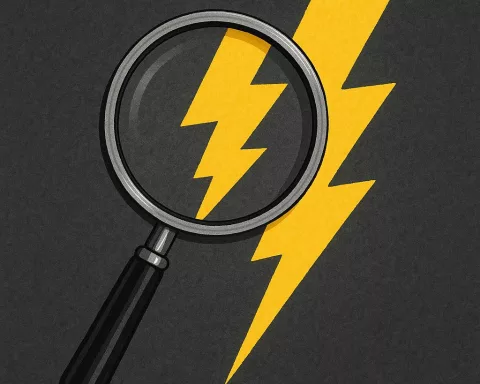Dr. Nobuhle Nkabane, South Africa’s Minister of Higher Education and Training, emphasizes the department’s role in shaping the country’s future by nurturing a qualified workforce for economic growth. She discusses the budget and performance of the department, as well as ongoing legal conflicts and the government’s commitment to combat Gender-Based Violence and Femicide on campuses. Dr. Nkabane also highlights the government’s dedication to expanding access to post-school education and training through diversifying public universities and boosting enrollment in TVET and Community Education and Training colleges, and investing in infrastructure.
Dr. Nobuhle Nkabane, South Africa’s Minister of Higher Education and Training, highlights the department’s role in sculpting the country’s future by nurturing a qualified workforce for economic growth. She discusses the voluntary turnover of R115 million and the ongoing legal conflict between NSFAS and eZAGA Holdings. The department has been allocated a budget of R137.5 billion, with a goal of achieving a 4.8% annual growth from R130.5 billion in 2023/24 to R150.2 billion in 2026/27. Dr. Nkabane also emphasizes the government’s dedication to combat Gender-Based Violence and Femicide on campuses of higher education.
Part 1: Underpinning Innovation Through Educational Platforms
During a recent National Council of Provinces (NCOP) 2024 Policy Debate, the Minister of Higher Education and Training, Dr. Nobuhle Nkabane, highlighted the importance of her department’s role in sculpting South Africa’s future. The department’s contributions span across all provinces, with its influence extending to public universities, TVET Colleges, Community Education and Training colleges, and SETA’s. These institutions function to nurture a qualified and capable workforce to stimulate economic growth.
Dr. Nkabane touched upon several topics currently leading the discourse in higher education and training. One such issue was the contentious matter of the education department’s reassignment of R580 million back to the National Treasury. She reasoned that this was a result of staff turnover and procurement process delays, both triggered by the Covid pandemic. Despite these obstacles, the department has achieved an outstanding 99% performance relative to its objectives.
She also discussed the voluntary turnover of an additional R115 million throughout the fiscal year, which was leftover from the Vista University Trust. Originally, this fund was meant to resolve claims of early retirement for former employees during the university’s consolidation.
Part 2: Legal Disruptions and The Ensuring of Uninterrupted Benefits
The ongoing legal conflict between NSFAS and eZAGA Holdings has also garnered public attention due to its potential impact on over a million students who benefit from the fund. Dr. Nkabane affirmed the public that the main concern continues to be securing uninterrupted benefits to students, universities, TVET Colleges, and supporting service providers.
In response to claims surrounding the appointment of the Services SETA CEO, Dr. Nkabane clarified that “The appointment and tenure of SETA CEOs are synchronized with the terms of office of SETA Boards or Accounting Authorities.”
The Department of Higher Education and Training has been allocated a budget of R137.5 billion, with a goal of achieving a 4.8% annual growth from R130.5 billion in 2023/24 to R150.2 billion in 2026/27.
Part 3: Commitment and Measures against Gender-Based Violence and Femicide
Dr. Nkabane underscored the government’s dedication to combat Gender-Based Violence and Femicide on campuses of higher education. In 2020, the GBV Policy Framework was initiated, setting up systems and capacities to address such violent incidents. The minister asserted the necessity of amplifying these efforts in the upcoming years.
The Minister’s focus on student financial aid indicates her recognition of the powerful role education plays in societal transformation. Despite existing inefficiencies, the National Student Financial Aid Scheme (NSFAS) has backed over five million beneficiaries since its inception, significantly democratizing educational accessibility.
Part 4: Encouraging Growth and Expansion in Higher Education
The NSFAS’s journey is remarkable. It has evolved from a budget of R33 million in 1991, benefitting 7,240 students, to an impressive R47.6 billion in 2023, assisting 1.1 million students. This growth symbolizes the government’s intentional intervention in expanding access to post-school education and training.
A critical aspect of Dr. Nkabane’s strategy includes diversifying public universities based on their unique strengths and community requirements, and significantly boosting enrollment in TVET and Community Education and Training colleges. The intent is to mould a more adaptable and relevant Post-School Education and Training sector.
The Minister also accentuated the extensive investment in infrastructure, fostering the creation of new universities, the renovation of TVET colleges, and the design of new student accommodation facilities. These significant advancements highlight the government’s dedication to enhancing access and safety for students.
The amalgamation of these strategies, along with the ongoing efforts to refine existing systems, signifies a robust commitment to expanding the prospects of South Africa’s youth through education and training. Dr. Nkabane concluded her address by urging the NCOP members to endorse these initiatives dedicated to transforming the lives of ordinary South Africans, particularly the upcoming generation.
1. What is the role of the Ministry of Higher Education and Training in South Africa?
The Ministry of Higher Education and Training in South Africa nurtures a qualified workforce for economic growth by shaping the country’s future through educational platforms that span across all provinces, including public universities, TVET Colleges, Community Education and Training colleges, and SETA’s.
2. What is the department’s budget and performance?
The Department of Higher Education and Training has been allocated a budget of R137.5 billion, with a goal of achieving a 4.8% annual growth from R130.5 billion in 2023/24 to R150.2 billion in 2026/27. The department has achieved an outstanding 99% performance relative to its objectives.
3. What is the ongoing legal conflict between NSFAS and eZAGA Holdings?
The ongoing legal conflict between NSFAS and eZAGA Holdings has potential impacts on over a million students who benefit from the fund. The main concern continues to be securing uninterrupted benefits to students, universities, TVET Colleges, and supporting service providers.
4. What is the government’s commitment to combat Gender-Based Violence and Femicide on campuses of higher education?
The government is dedicated to combat Gender-Based Violence and Femicide on campuses of higher education. In 2020, the GBV Policy Framework was initiated to set up systems and capacities to address such violent incidents.
5. How is the government expanding access to post-school education and training?
The government is diversifying public universities and significantly boosting enrollment in TVET and Community Education and Training colleges. The intent is to mold a more adaptable and relevant Post-School Education and Training sector. The government is also investing in infrastructure, fostering the creation of new universities, renovating TVET colleges, and designing new student accommodation facilities.
6. What is the NSFAS and its growth?
The National Student Financial Aid Scheme (NSFAS) has backed over five million beneficiaries since its inception, significantly democratizing educational accessibility. It has evolved from a budget of R33 million in 1991, benefitting 7,240 students, to an impressive R47.6 billion in 2023, assisting 1.1 million students.












